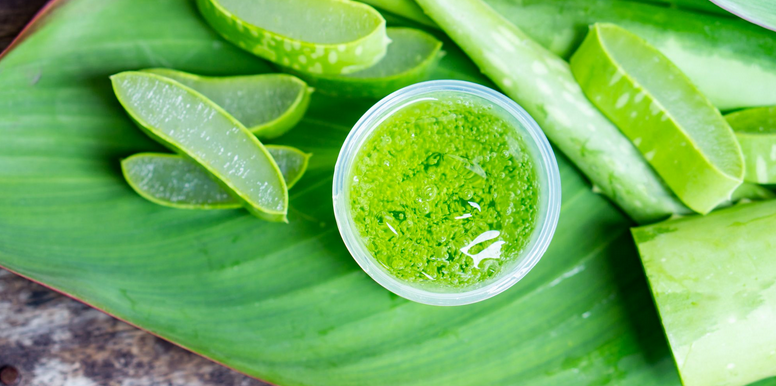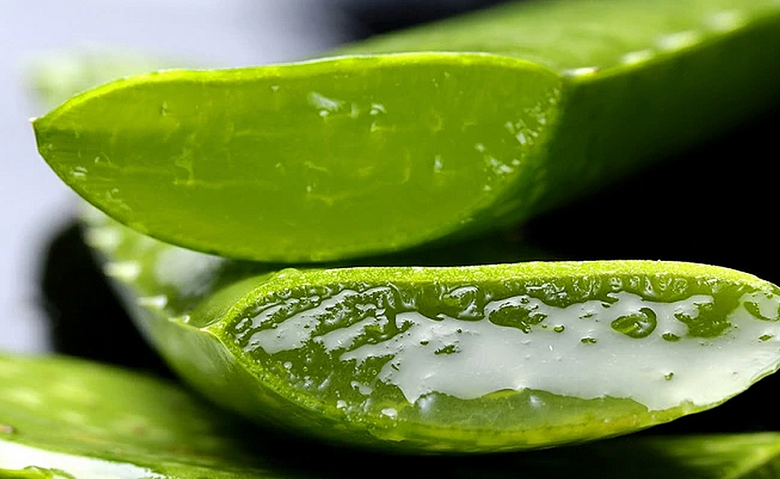If you have ever wondered what the benefits of aloe vera are, you’ve come to the right place. You can read about its anti-aging properties and its Anti-bacterial, Antiviral, and Anti-inflammatory properties. However, there are some things to consider before drinking aloe vera juice.
Aloe vera is a succulent plant that is commonly used as a topical gel to treat sunburns. You can also consume it as an herbal supplement or apply it topically to improve skin health, maintain healthy blood sugar levels, and more.
Anti-aging potential
Aloe Vera has anti-aging properties, but how does it work? Various studies have shown that aloe contains several antioxidants that help fight free radicals. These free radicals can damage DNA or alter the production of proteins and lipids. When free radicals become too abundant, they can lead to cell death and premature aging. Aloe is rich in mineral antioxidants like calcium, iron, copper, selenium, and chromium.
Aloe Vera is also a great moisturizer. Because of its hydrating properties, it’s commonly used as a skincare ingredient. It helps to retain moisture in the skin, which keeps it looking younger. Without moisture, skin cells lose their plumpness and sag, resulting in wrinkles.
 Is it good to drink aloe vera everyday?
Is it good to drink aloe vera everyday?
Anti-bacterial
Aloe Vera contains a number of powerful compounds that can help you to fight bacteria and fight infections. These compounds include anthraquinones, which are phenolic compounds that have antibacterial, anti-inflammatory, and analgesic properties. It also contains four fatty acids, including cholesterol and beta-sisosterol.
The chemical and therapeutic properties of aloe vera have been studied in numerous laboratory settings. In one study, the aloe extract from aloe plants produced the highest percentage of inhibition of a wide range of pathogenic bacteria. These findings indicate that aloe could be an effective natural alternative to pharmaceutical antibiotics.
Antiviral
Antiviral activity is an important aspect of Aloe Vera, and its antiviral activity can inhibit bacterial protein synthesis. It does this by preventing the association of aminoacyl-transfer-ribonucleic acid (t-RNA) with the bacterial ribosome. t-RNA is a component of protein synthesis, and it is involved in decoding m-RNA. It also binds to an amino acid and delivers it to the ribosome.
Aloe Vera contains 75 different ingredients, including enzymes, vitamins, minerals, and phenolic compounds. It also contains antioxidants, anti-inflammatory compounds, antibacterial, antifungal, and antiviral properties. Studies have shown that it helps in the treatment of a variety of health conditions, including infections. It has been used in traditional medicine for centuries for its antiviral, anti – inflammatory, and antibacterial properties. Its antiviral and anti-fungal effects are also well-known.
Anti-inflammatory
Aloe Vera is a plant native to northern Africa that contains a gel that contains several anti- inflammatory and antimicrobial properties. These properties have made the plant popular as a dietary supplement. Recent studies have revealed that the gel can also have immunomodulatory effects. In one study, aloe gel suppressed production of pro- inflammatory cytokines in human immune cells. In another, aloe gel decreased the production of MMP-9, a key enzyme in the inflammatory response.
It has also been shown to reduce the appearance of fine lines and wrinkles. It also improves the elasticity of skin and has anti-inflammatory properties. It can also help control blood sugar levels and help improve overall dental health. Its antioxidant content may also protect the body from free radical damage and prevent oxidative stress.
 Aloe Vera Benefits
Aloe Vera Benefits
Lowers blood sugar
A recent study suggests that taking aloe vera regularly lowers blood sugar. The study was conducted on subjects who were pre -diabetic. The subjects were evaluated for their fasting blood glucose (FBS), lipid profile, and HbA1C levels at baseline, four weeks, and eight weeks. Researchers measured changes in fasting blood glucose and HbA1C as weighted mean differences from baseline.
High blood sugar is one of the main causes of diabetes. Women with a waist circumference of 40 inches or greater are at higher risk of developing the disease. Women should try to consume more water, as it prevents dehydration, and helps the kidneys flush out excess glucose. Those who drink more water also have a lower risk of developing hyperglycemia.
Helps with constipation
Aloe Vera is a natural laxative, and its leaves contain a translucent gel that is rich in anti- inflammatory properties. However, it is important to drink it in moderation to avoid diarrhea or bloating, which can also lead to cramping. This herb also relieves skin inflammation.
You can easily find aloe vera capsules at health food stores or other outlets promoting healthy eating. You can take an aloe vera capsule along with a glass of water or fruit juice. Taking an aloe vera supplement daily will relieve constipation and can even soothe the gut. If you choose a capsule, it is best to read the product description carefully before deciding whether it will work for you.
Aloe vera is a topical gel with a long history of use as an agent to treat burns and wounds. The popularity of its topical use has led to investigation of its effects on other parts of the body. Preliminary research has demonstrated that aloe vera consumption may be beneficial for skin, dental, oral, digestive, and blood sugar health. Further research may reveal potential uses in additional health areas in the future.
